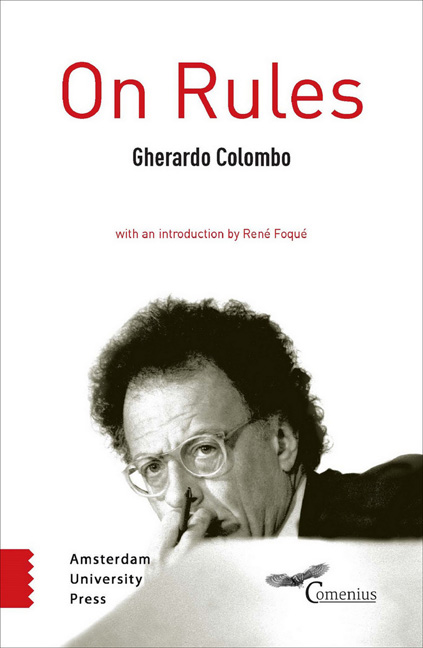Book contents
- Frontmatter
- Introduction: Gherardo Colombo’s Concern for the Democratic State under the Rule of Law: A Work in Progress
- Why?
- 1 An Imaginary Country
- Contents
- Part I The Ambiguities of Justice
- Part II Horizontal Society and Vertical Society
- Part III Towards a Horizontal Society
- Part IV How Do We Get There?
- Conclusion
- Acknowledgments
- Frontmatter
- Introduction: Gherardo Colombo’s Concern for the Democratic State under the Rule of Law: A Work in Progress
- Why?
- 1 An Imaginary Country
- Contents
- Part I The Ambiguities of Justice
- Part II Horizontal Society and Vertical Society
- Part III Towards a Horizontal Society
- Part IV How Do We Get There?
- Conclusion
- Acknowledgments
Summary
Do you remember the imaginary country described in the first pages of this book? The one where subterfuge, cunning, force, dishonesty all triumph behind the appearance of equal laws for everyone and respect for every basic right? The one in which those who adhere to formal laws (they may not necessarily be a small number) are stepped over daily by those who do not respect them?
Can we work out a system to reverse that situation, one which does not involve reversing that culture? And can we imagine that culture can change ‘on orders of the authority’, which, by the way, is an expression of the same citizenship that promotes itself by breaking the law? Isn't the answer to develop an opposite way in one's private life, and then suggest it to other people, to prove to them that it can be practicable, and at the same time show what are the disadvantages the vertical society brings even to the most cunning, to those who have the most connections, to the strongest and most powerful?
Is it necessary, in order to expose these disadvantages, to recall the need for increasingly ghetto-like ways to defend one's own space and property, for the spread of wars, the progressive destruction of resources, the continuous exclusion of large numbers of people from recognition and harmony, the triumph of division and hatred?
Of course the absolute respect of fair rules will never be universal.
We are, all of us, human beings, carrying with us every day all of our imperfections, and we will never be able to contrive and practice perfect forms of common living.
Of course evil cannot be completely eradicated from history. Human nature itself, in its mortal finitude, is a frequent source of anxiety and suffering. All this cannot be remedied by rules and their observance.
Within these limits, the conscious choice, and its consistent application, to move towards a social model based on the recognition of human beings, determine the direction of our journey and qualify each one of its stations. The more we advance, the more possibilities we get to see ourselves and every other person as subjects, not as objects. To be free and not subdued, citizens and not subjects.
- Type
- Chapter
- Information
- On Rules , pp. 142 - 143Publisher: Amsterdam University PressPrint publication year: 2016



